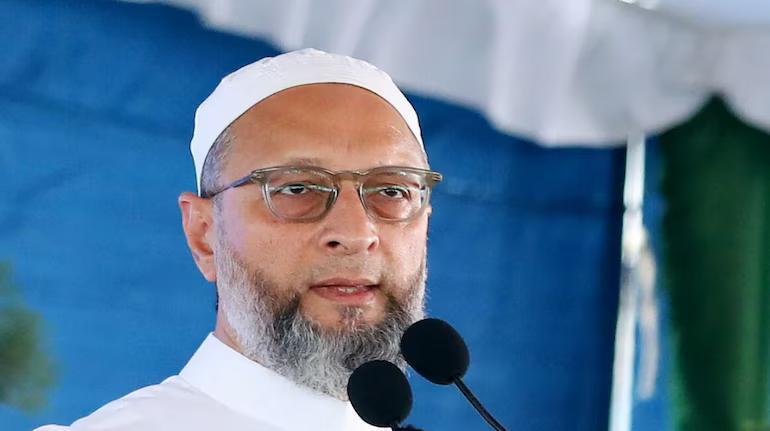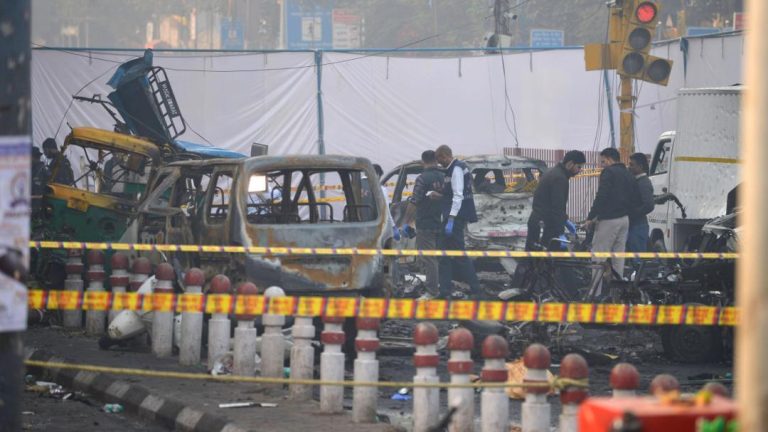
Pakistan is Epicentre of Takfirism: Asaduddin Owaisi in Algeria
Asaduddin Owaisi, the leader of the All India Majlis-e-Ittehadul Muslimeen (AIMIM), has sparked controversy by labeling Pakistan as the epicentre of takfirism. Owaisi made these remarks during his visit to Algeria as part of the Operation Sindoor delegation, where he met with various Algerian officials and dignitaries. Takfirism, a radical ideology, justifies the killing of fellow Muslims who are deemed apostates or unbelievers. Algeria, in particular, witnessed the devastating effects of takfirism during its civil war from 1991 to 2002.
Owaisi’s statement has significant implications, especially in the context of Pakistan’s recent struggles with terrorism and extremism. Pakistan has been under pressure to address the issue of takfirism and extremism since the 9/11 attacks. In 2018, the country was placed on the Financial Action Task Force (FATF) “grey list” due to its failure to curb terrorist financing and money laundering. However, Pakistan was given a four-month reprieve to implement the necessary reforms, and it was removed from the list in October 2020.
Owaisi’s comments have reignited the debate about Pakistan’s role in promoting takfirism and extremism. In an interview with a local Algerian newspaper, Owaisi stated, “Pakistan is the epicentre of takfirism. It is the breeding ground of extremism and terrorism. The country needs to be brought back to the FATF ‘grey list’ until it takes concrete steps to curb terrorism and extremism.”
Owaisi’s statement has been met with both support and criticism. Some have hailed his remarks as a bold and necessary step towards addressing the issue of terrorism, while others have criticized him for making provocative statements that can be seen as anti-Pakistani.
Pakistan, on the other hand, has dismissed Owaisi’s comments as “baseless and motivated”. In a statement, the Pakistani Foreign Office called Owaisi’s remarks “uninformed and misleading” and accused him of being “misguided” by “vested interests”.
The Pakistani government has been working to improve its image and combat terrorism and extremism. In recent years, Pakistan has launched several military operations against terrorist groups, including the Tehreek-e-Taliban Pakistan (TTP) and the Islamic State (ISIS). The country has also made significant progress in dismantling terrorist networks and arresting key operatives.
However, despite these efforts, Pakistan still faces significant challenges in combating terrorism and extremism. The country’s porous borders and lack of effective border control make it vulnerable to terrorist infiltration. Additionally, Pakistan’s complex political landscape and fragmented society provide fertile ground for extremist ideologies to take root.
In the context of Algeria, Owaisi’s comments are significant, as the country has a long history of struggling with takfirism and terrorism. The Algerian civil war, which lasted from 1991 to 2002, was characterized by brutal violence and human rights abuses perpetrated by various extremist groups, including the Armed Islamic Group (GIA) and the Salafist Group for Preaching and Combat (GSPC).
Algeria’s experience with takfirism has had significant implications for the country’s political and social landscape. The civil war led to the deaths of an estimated 200,000 people and displaced hundreds of thousands more. The conflict also had a profound impact on Algeria’s political system, leading to a period of authoritarian rule and a decline in the country’s human rights record.
In recent years, Algeria has made significant progress in addressing the issue of terrorism and extremism. The country has launched several military operations against terrorist groups, including the Islamic State in the Greater Sahara (ISGS) and the Al-Qaeda in the Islamic Maghreb (AQIM). Algeria has also strengthened its counter-terrorism laws and increased cooperation with international partners to combat terrorism and extremism.
In conclusion, Asaduddin Owaisi’s comments about Pakistan being the epicentre of takfirism have sparked a heated debate about the country’s role in promoting extremism and terrorism. While Owaisi’s remarks have been met with both support and criticism, it is clear that Pakistan still faces significant challenges in combating terrorism and extremism. The country must continue to work towards improving its image and addressing the root causes of terrorism and extremism.






